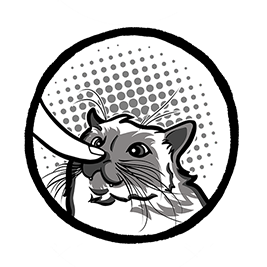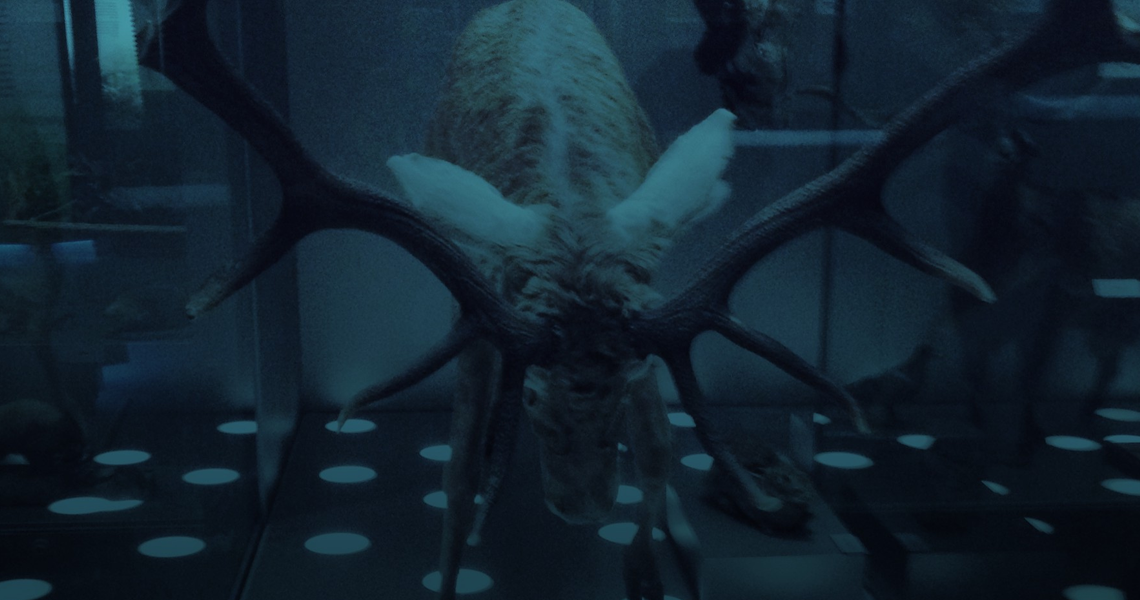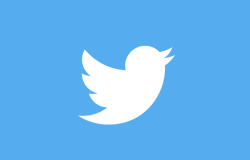Game Industry 101: The Power of Online Networking
Note: Originally posted on Medium – https://medium.com/@kindofstrange/game-industry-101-the-power-of-online-networking-e59edcdb2f4e
The game industry can be a wonderful place, filled with amazing people, making an insane amount of creative content year in and year out. It’s also a much smaller place than many people realize.
For industry veterans, it’s not at all uncommon to have worked with some of the same people over the course of many years, at a variety of companies. For those looking to get into the industry, this can be incredibly daunting as personal recommendations can make or break an applicant’s chance of success in finding a role, let alone actually getting one.
Luckily, the opportunity to connect online can be an incredible way to start building one’s connections. You don’t necessarily have to be in a big city to start reaching out to other developers and building real relationships. So jump on in, give it a go, and see where it can take you!
Get on Twitter (come @ me bro!)
If you’re already on Twitter, feel free to skip this section! (and add me @kindofstrange)
If you’re not already on Twitter:
Do it. Now. Like right now. Go ahead, I will wait.
…Why have you not done it yet?!
Twitter is one of the most valuable tools available for connecting with a variety of game developers around the world. Not being on Twitter is cutting yourself off from a fantastic opportunity to reach out, make connections, and learn from others in the industry.
Unlike more friends-and-family oriented social networks such as Facebook, or the more strictly-business LinkedIn, Twitter has a low barrier for establishing communication. Anyone can @ another member (unless blocked), and there’s little to no expectation around what that contact entails.
Twitter is the big, open convention hall in which people are wandering around having random conversations. It’s generally acceptable to jump into a conversation or attempt to start one yourself. You may not get a response, but there’s no real harm in trying either. Most game developers I know are fairly open to chatting with people on Twitter when they’re around, even if they’re unwilling to add to those same people on Facebook or LinkedIn.
Twitter becomes particularly useful if you’re currently living in an area that doesn’t have many (or any) opportunities for in-person networking. Many people are just a tweet away, regardless of where you’re living in the real world. I have recently moved to New Zealand, and while the local dev scene is great, getting a wide range of opinions tends to require casting a broader net. In those instances I tend to to turn to Twitter first.
In short: It’s a great tool. Use it!
Don’t Add People on LinkedIn that You Don’t Know
Just don’t. It’s weird and contrary to the purpose of the tool.
Your LinkedIn connections should be reserved for people that you’ve actually met and/or done business with, or at least have a high likelihood of working with in the future. You don’t necessarily have to have to met in person*, but you should have more of a relationship than the vast majority of people you will ever follow on Twitter. Blindly adding people on LinkedIn is a bit of a faux pas, and can make you look unprofessional in certain situations, particularly if you’re doing it en masse. Attempting to blindly add people to your professional network can be just as obnoxious as shoving a business card in someone’s hands before ever having a real conversation. Networking is not about having the largest number of people, but about building real relationships.
That said, if you’ve had a good conversation with someone through other means and would like to add them on LinkedIn, it’s not a bad idea to ask if that’d be okay. Different people are more open to it than others, and if they have reason to believe you’ll be a good connection, it never hurts to ask!
*I have plenty of people on mine who I haven’t actually met in person. However, those still tend to be people I have worked with, albeit remotely. Yay for localization testers!
Approach Criticism with an Open Mind
Everyone seems to think that they know what it takes to make a great game, and that enthusiasm is great! However, if you’re asking for constructive criticism it’s best to keep an open mind and not take things too personally.
Nearly every game developer has a story about someone, who at some point, at a convention / talk / etc asked for help and then spent the entire time disregarding or otherwise refuting any advice that person attempted to give.
For example, I once had a student follow me around for close to an hour after my talk because I thought he should ‘start smaller’, rather than attempt to build an MMO with his two friends. He didn’t want to hear any actual advice, but instead wanted to grill me on why he should listen to what I had to say. I hadn’t worked on an MMO, you see, and therefore my years of experience on smaller projects wasn’t relevant and my advice was therefore null and void. It’s good to know that things like scoping, creating timelines, and accounting for unexpected challenges wasn’t something that applied to every project. Glad he cleared that up for me!
It can be incredibly frustrating to have someone request feedback, and then find yourself on the defensive as they argue every little detail. This becomes particularly annoying when someone with no direct experience disregards or, even worse, attacks you for trying to provide help based on experience.
If you’re just looking for validation, don’t ask for a critique.
Remember: No One Owes You Anything
Pretty self explanatory, but good to keep in mind!
No one owes you anything, and expecting that someone will bend over backward to help you will at best end in frustration, at worst get you blacklisted from future help.
Most of the people in the game industry are incredibly busy most of the time, and while many are happy to help when they can, sometimes it can take a while to get back to someone requesting guidance. Even if you see them randomly tweeting throughout the day, that doesn’t necessarily mean they have a ton of free time to throw around. Tweeting about one’s lunch doesn’t tend to take much time, but responding to a request for an in depth critique does.
If you reach out to someone and they don’t respond in short order, don’t lose your cool. It’s okay to send a follow-up, but be respectful of their time and the potential that they may have the bandwidth to help you out right now. No one is obligated to give you even a minute of their time, period. You may not know what’s going on in their life right now, and getting frustrated about their inability to help you out isn’t going to earn you bonus points.
Someone took a little while to get back to you because they’re slammed at work / were on vacation / just didn’t feel like it right then? If your response is to lead with anything along the lines of “ I would have expected better…” stop, just stop.
Always Say Thank You!
I cannot over-stress the importance of saying thank you to someone who helps you out, nor the danger of forgetting to do so. The game industry tends to be rather fast paced, and not all of us have a ton of free time to go around. If someone puts aside some of their time to help give you guidance, answer questions, or otherwise help you along, say thank you!
You should say thank you even if the advice wasn’t necessarily what you wanted to hear, it didn’t cover everything you needed information on, or didn’t address all of the points you’d hoped it would. Not just because it’s the right thing to do, but because again, it’s a very small industry. If someone builds a reputation for being ungrateful, that’s not going to bode well for their continued chances at receiving help from others.
I recently had someone new to the industry ask me for help in how to approach using social media to promote the game studio they were building with a friend. I spent a few hours of my personal time putting together a list of suggestions based on their business model, and made recommendations as to how they might approach creating content, etc. That person never said thank you, despite being an email or tweet away.
Do you think I’m ever going to help that person out again?
Am I going to recommend them for a role within the industry?
If you think the answer is yes, you are mistaken.
Had this person simply said ‘Hey, thanks for the info, I really appreciate it!’, I would continue to do my best to help them out, provided I had the time. But if someone isn’t willing to take the 30 seconds to express the appreciation they’d give to the person making their latte in the morning? Nah, that’s cool, I’ve got others things to do.
What You Say Matters
I feel like this should go without saying, but just to be clear:
What you say matters.
If you’re putting something up online, you should be prepared to take full accountability for what you choose to say. It doesn’t matter if it’s your personal account, or if you thought only your friends would see it. If a potential employer or even potential peer sees it, you can and will be held accountable for what you chose to say.
Recently I was hiring for a position within my team. One applicant looked like they had the right skill-set. They had some of the right experience, and looked like they could be a good fit. However, a quick look at their public Twitter account ruined any chance they had of getting the role.
Why?
Well, I’m not really looking for someone who frequently calls other people ‘fucken cunts’ or makes racist remarks to represent the company and everyone involved. That sort of thing is a massive liability to the business, in addition to generally not being the sort of culture I want to bring into the company.
And again, I cannot stress enough how small the game industry really is. While you may want to vent about a particular issue you have with a game, talk about how you would have done X differently, etc, it’s always best to remember that there are real people involved in the creation of every game that goes out there, and that what you say can get back to them.
Constructive criticism can be okay, but ranting for hours on end about how a certain developer has their head up their ass because they didn’t do something the way you wanted them to tends to leave a bad impression. If you’re looking to get into the industry at some point, you won’t do so by tearing other people down.
Be Respectful & Genuine
There’s nothing more disheartening than to realize that someone is only interested in talking to you because of what you can do for them. Don’t be that person.
Networking isn’t about building a list of business cards or email addresses that will magically do your bidding when you need their help. It’s about building real relationships with real people, which can take time. If you’re not representing yourself in an honest fashion, or you’re only using people for what they can do for you, they’re not going to stick around.
Thinking of networking in terms of building real relationships can go a long way towards setting the right expectations. Is everyone going to want to be your friend? Nah, but that’s okay! There are plenty of people who will! With time and effort you can build some fantastic, lasting friendships!
Additional Resources:
Game developers on Twitter:
- http://www.thegamedevcast.com/index.php/gamedevtweet/
- http://kotaku.com/the-video-game-people-you-should-be-following-on-twitt-1532776063
Some useful hashtags:





